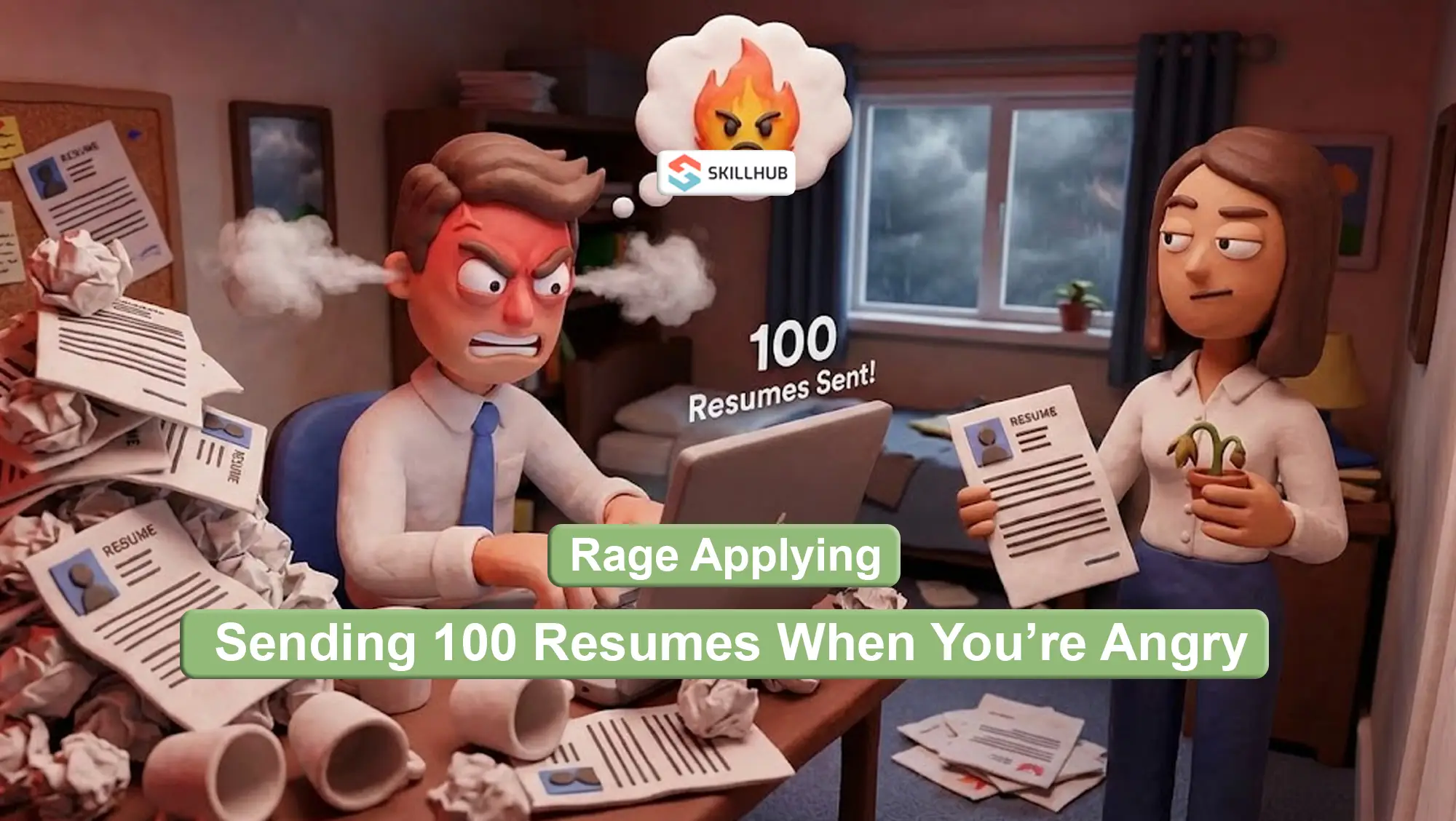The Ultimate Guide to Salary Negotiation: Maximizing Your Offer in 5 Steps

The transition from a valued candidate to a high-value employee is decisively concluded not by mere acceptance of a job, but by the relentless negotiation of its precise financial worth. This critical phase, a single, highly-leveraged moment in your career, will dictate your earnings trajectory for decades; with any miscalculation in strategy resulting in profound, compounding financial loss. Professionals, astonishingly, fail at this point, often timidly accepting the initial figure presented by a recruiter, thereby voluntarily cementing a compensation ceiling that is arbitrarily low. Rejection of this passivity is non-negotiable.
The negotiation of salary should, therefore, be approached not as a hesitant request for generosity, but as a meticulously prepared, utterly data-driven business transaction. Your primary objective is neither to express hope nor to articulate a desire for additional funds; it is, quite simply, to construct an irrefutable, fully substantiated business case that mandates a higher total compensation package, leveraging external market data against your specific, quantifiable professional impact. This five-step process, engineered over decades of high-level executive hiring, ensures you engage with maximum leverage and an absolute minimum of financial friction.
Step 1: The Non-Negotiable Deferral of Compensation Talk
Under no circumstances whatsoever, ever, allow the topic of salary, desired range, or current compensation to become the focus of the early interview stages before a formal, written offer has been extended. Discussing salary prematurely it’s a tactical surrender fatally compromises your entire strategic leverage. A recruiter's inquiry into your expected salary acts as a deliberate psychological ploy, an exercise designed only to establish the lowest possible anchor point for their subsequent offer. You will not take the bait. You will not concede.
Deflection is Your Strategic Core
Your actual negotiating power is built solely upon the organization's recognized need for your specific value, a value that becomes quantifiable only when the company concludes, definitively, that your particular expertise is irreplaceable meaning the decision to hire you is final. Until that pivotal moment, you remain merely a generic data point on a recruiter’s spreadsheet. Maintain a strict, professional focus on the role's technical requirements, the team's operational needs, and the mission.
- The Anchor Trap: If you prematurely disclose your historical earnings, the recruiter will anchor their offer to that figure, regardless of the new role’s increased scope or the current market rate for the position. Your worth is defined by the present, objective market for your expertise, not by historical, irrelevant compensation. That is the core principle.
- The Expert Counter: When aggressively pressured for a number, your reply must be confident, collaborative, and unyielding. "I appreciate the frankness, but my primary focus must remain on ensuring an optimal technical and cultural fit for this absolutely critical role. I am, however, completely confident that once we establish mutual commitment, your final compensation package will align competitively with the market standard for a candidate possessing my level of proven impact and unique expertise." Be absolutely succinct.
This calculated act of deferral is itself a potent signal of strategic awareness and confidence, which are, without question, the non-verbal E-E-A-T indicators most valued in any high-stakes professional engagement.
Step 2: The Meticulous, Data-Driven Valuation Audit
The moment that formal, written offer arrives, the timer for your strategic response begins. You now hold the necessary leverage. Responding immediately, however, remains a profound tactical error. You must take a mandatory minimum of 48 hours for deep, uncompromising data validation this is to establish your authentic, utterly defensible market anchor. Your counter-offer must rest exclusively on data.
Dissecting Total Compensation (TC)
The negotiation is not merely about the "base salary" line item; fixating here is an amateur’s misstep. You must meticulously calculate and negotiate Total Compensation (TC), which is the quantifiable sum of all components: the base salary, the annual bonus potential, the full value of equity (RSUs, Stock Options, ESOP) and its complex vesting schedule, and all secondary, non-monetary benefits (sign-on bonuses, professional development budgets, vacation days).
To establish your true TC target, use verified, contemporary data. Reject generic, low-quality salary aggregators. You require granular, localized metrics from industry compensation reports or high-fidelity, peer-validated platforms (e.g., Levels.fyi). Your objective is to locate the 75th to 90th percentile for the exact role, specific experience tier, and precise geographic area. That calculated figure is the absolute floor for your initial counter-anchor. Do not go below it.
Step 3: Formalizing the Counter-Proposal: A Business Justification
The counter-offer is never delivered as an off-the-cuff verbal remark. It must be presented as a formal, meticulously constructed written proposal, typically via a concise, direct email. This professional formality compels the hiring team to respond in kind, shifting the entire conversation away from emotional guesswork and firmly onto measurable business logic. You must control the document's structure.
The Three Elements of an Irrefutable Counter-Letter
- Enthusiasm and Immediate Commitment: Open with genuine appreciation. "Thank you very much for this offer. I am genuinely excited and ready to commit to [Company Name] and begin making a significant impact on [Team's Core Goal]." This maintains the professional goodwill.
- The Factual Justification: This is the non-negotiable core, the engine of the negotiation. You must articulate precisely why your value substantively exceeds the initial offer. Reference your unique certifications, your specialized skills, and, most critically, your quantifiable track record of success. Critically, avoid listing mere job duties; focus solely on your professional achievements metrics detailing revenue generated, costs saved, or efficiencies implemented. The difference is astounding. I drove a 19% reduction in operational spending, not simply 'managed the budget responsibly'.
- The Counter-Proposal (TC Breakdown): State your requested final TC figure clearly, itemizing each component to prove the figure is rational, not merely aspirational. For instance: "Based on my market research and my demonstrated capacity to lead high-velocity projects, I propose a Total Compensation of $X, broken down as follows: $Y Base, $Z Sign-on Bonus, plus W RSUs vesting over four years."
- Closing with Commitment: Conclude by reiterating your absolute commitment to the company and stating that you are prepared to sign the offer immediately upon agreement to the revised terms.
The Expertise Chasm: Why Justification Fails at the Highest Level
The most frequent reason a strong candidate's counter-offer fails is a complete absence of quantifiable justification. Asking for a 15% raise without providing the irrefutable, data-backed evidence of your worth the metrics that actually matter to a CEO is a fatal flaw. This level of justification requires that your entire professional history, from your CV personal statement profile to your last review, is ruthlessly converted into concrete, dollar-impact statements. This objective self-assessment, I must stress, is nearly impossible to perform accurately without external, expert perspective.
A counter-proposal that sounds entitled, relies on generic "industry standards" without precise data, or simply expresses a need for additional funds will, without fail, be rejected or, worse, viewed as a major red flag by the hiring manager. The sheer complexity of financial justification and the zero-tolerance risk profile of a negotiation mean that attempting to do this alone is a severe financial hazard. It is a gamble you cannot afford to lose.
If you possess any uncertainty about your ability to draft a flawless, data-backed justification letter that maximizes your compensation based on your unique, technical expertise, you are leaving an investment on the table. Why risk a decade of earnings on a single, self-assessed email?
Secure Your Maximum Offer: Hire a Negotiation Expert immediately. Our certified consultants provide granular market analysis and draft bespoke counter-proposal letters that consistently outperform self-negotiated figures, guaranteeing you maximize the Total Compensation package. This is a non-negotiable investment in your financial future.
Step 4: Outmaneuvering Recruiter Pushback with the Strategic Pivot
When the recruiter contacts you with a revised offer, anticipate a strategic pushback, often framed as constraints based on "internal equity," "strict policy," or "budget maximums." These are, by now, standard, predictable tactics. Never take these statements at face value.
- The Equity Swap Strategy: When the base salary hits a genuine, non-negotiable ceiling, immediately, without hesitation, pivot the negotiation to other elements of the Total Compensation package. A strong negotiator never fixates on one variable; they operate across the entire financial spectrum.
- Recruiter’s Push: "We managed to raise the base to $115,000, but that is our absolute maximum base salary, firm."
- Your Expert Counter-Pivot: "I completely understand the constraint on the base salary, and I appreciate the adjustment. However, to bring the overall value of this offer into full alignment with my required market parity, could we instead look to optimize the compensation structure by increasing the RSU grant to 2,000 units, or by increasing the annual professional development budget by $5,000 for industry certifications?"
Maintain constant momentum in the negotiation. You must trade one non-negotiable item for another, more flexible component. Be prepared to demand a higher professional development fund, accelerated stock vesting, or a clear, quantifiable commitment to a performance-based raise within the first six to nine months. Never accept a definitive "no"; accept a rejection on one variable and immediately, professionally pivot to another.
Step 5: Finalization, Formalization, and Contract Scrutiny
Once a final agreement verbal or written is explicitly reached on the new Total Compensation package, the negotiation is over. You must finalize the process swiftly and professionally, ensuring every detail is perfectly captured. There is zero tolerance for errors at this final stage.
- Written Proof is Paramount: Do not submit your formal acceptance, and certainly do not tender your two week notice letter, until you have received a new, fully updated, signed offer letter that precisely includes every last-minute negotiated detail. Every single one. Verbal promises in this context are financially worthless.
- The Meticulous Review: The final contract must be scoured for any discrepancies regarding the vesting schedule, the bonus structure's performance metrics, or the severance clause. Ensure the language around your performance targets is explicit and measurable. This is the moment when the technical alignment between your expertise and the company’s need must be perfectly reflected.
Only when the written contract is a flawless reflection of the final, agreed-upon terms should you affix your signature. The professional decision is already confirmed; the financial negotiation is now conclusively successful. This demanding, five-step process successfully converts a timid acceptance into a powerful, career-defining financial victory.
Conclusion: Negotiation is the ultimate professional skill.
Negotiation is not an emotional conflict; it is the definitive, quantitative measure of a professional’s ability to confidently value their own expertise in a competitive market. Do not let fear or simple ignorance prevent you from securing your deserved lifetime earnings. By leveraging data, strategic deferral, and a flawless counter-proposal, you establish both a superior salary and a stronger, more respected professional position.
%20(1).png)



%20(1).webp)